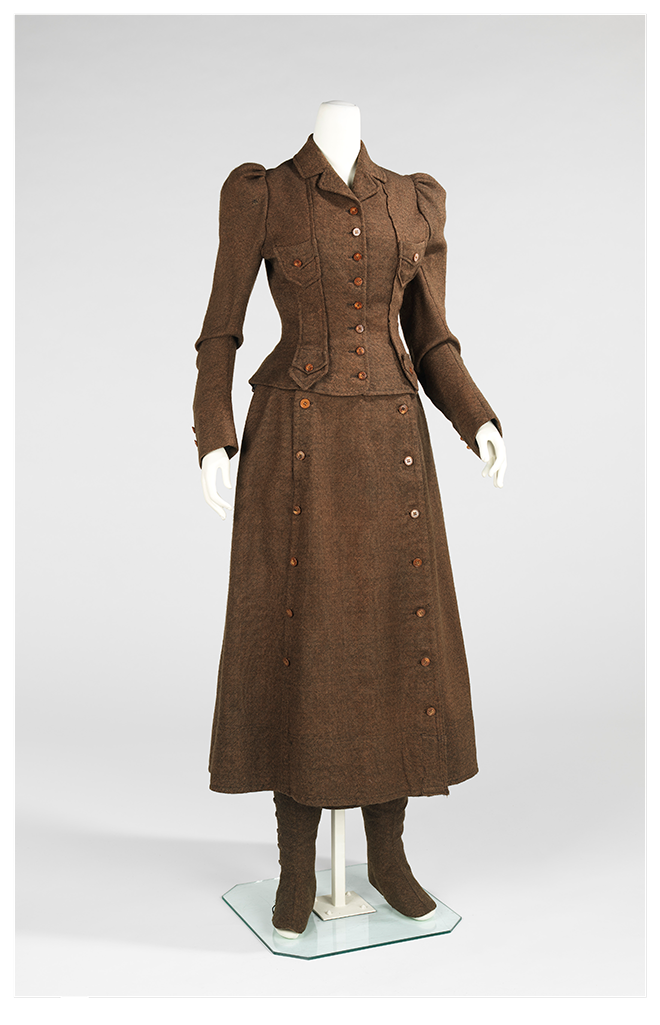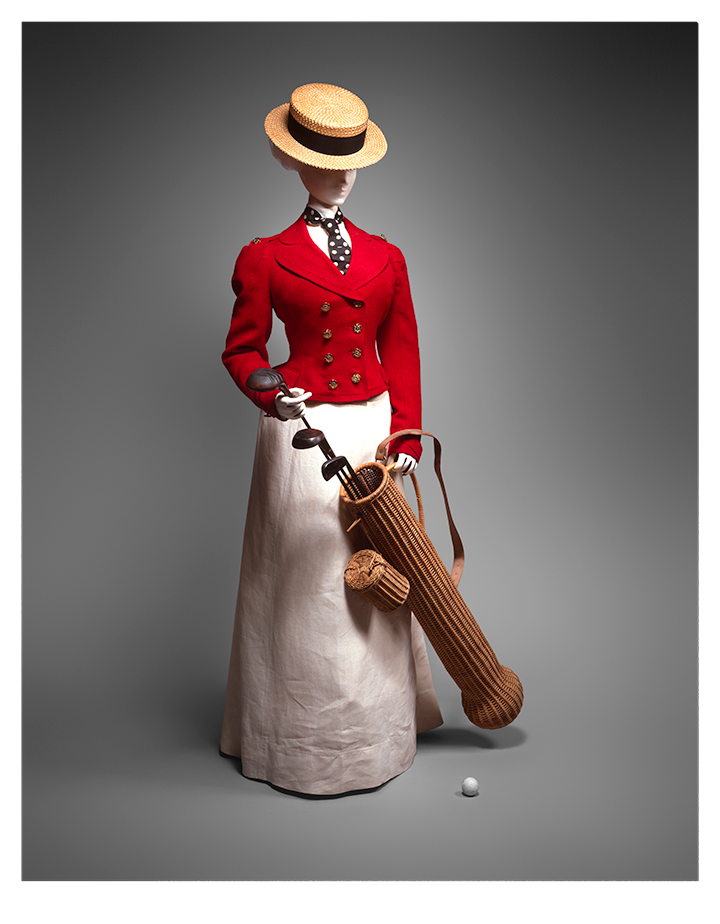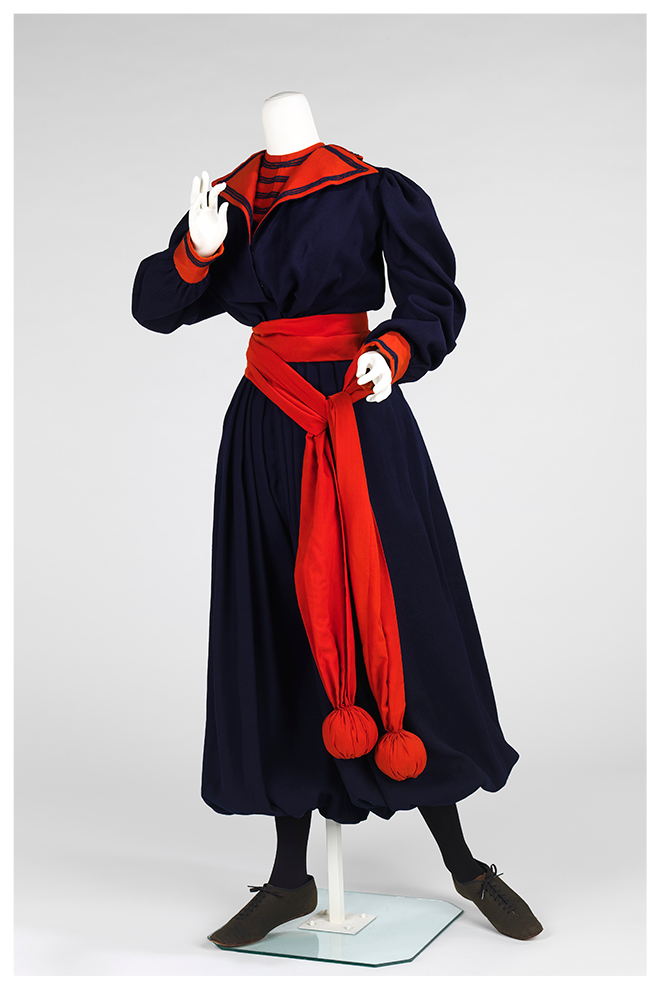Background
In the second half of the nineteenth century, scientific research led to widespread health reform. With greater knowledge of the human body and of the hazards of industrial and urban life, experts promoted nutrition and exercise. Traditionally, women were excluded from exercise. It was thought they were fragile and needed the protection of home. But new research proved all bodies benefit from movement. Schools and colleges required physical education courses for female students, and women fortunate enough to have leisure time used it to pursue exercise.
New opportunities for exercise also meant newfound freedom. Gym classes and organized sports like tennis and golf allowed for socialization and new skills development. But bicycling was the most liberating of the new activities considered appropriate for women. The bicycle was not only fun but also a transportation method. Women eagerly embraced their ability to travel independently by bicycle. Susan B. Anthony famously said the bicycle “has done more to emancipate women than anything else in the world. It gives women a feeling of freedom and self-reliance. I stand and rejoice every time I see a woman ride by on a wheel.”
About the Artifacts
With new activities came a need for a new wardrobe: one that allowed for movement but maintained the modesty and dignity expected of women. These three images show recreation outfits from the 1890s. The first is a bicycle suit with a bifurcated skirt. While the bottom looks like a regular skirt, it is actually a pair of wide pants with a separate panel buttoned to the front to cover the separation of the woman’s legs. The second is a golf outfit. The third is a gym outfit for exercises classes. It includes a loose shirt and baggy pants—also known as bloomers. The scarf with balls could be used as a prop during exercise routines, much like weights or bands are used in exercise classes today.
Vocabulary
- bifurcated: Divided into two parts.
- emancipate: To free from restrictions or restraints.
- hazard: A source of danger.
- modesty: Humility or the avoidance of unnecessary attention.
- self-reliance: Independence.
Discussion Questions
- What do you notice about each of these outfits? What would it be like to wear one?
- How does each outfit represent both traditional views of womanhood and the newfound freedoms women pursued in this era?
- How do these outfits compare with what women wear for similar activities today? What does this tell us about how societal values, the purpose of exercise, and the experiences of women have changed over time?
Suggested Activities
- Invite students to get up from their seats and move their bodies as if they were playing golf, riding a bicycle, or taking an exercise class. Then, ask them to try doing it as if they were wearing a corset, a long skirt, flowing pants, or a hat. What movements might be difficult or impossible? What movements might be uncomfortable or painful?
- Compare these three outfits with contemporary cycling, golfing, and exercising outfits. How and why do they differ? What can we learn about how values and gender roles have changed (or not) over time?
- Use this image in conjunction with the 1848 fashion plate from Godey’s Ladies Book to explore how women’s fashion changed from the mid-nineteenth century to the late nineteenth century.
- Compare these outfits with the one depicted in the Rose O’Neill’s suffrage poster. How is the uncorseted outfit in that resource different from the three recreation outfits?
- Explore the rise of industrialized clothing manufacturing and Ladies’ Mile through the construction of a three-dimensional window display exhibiting a new recreational outfit of the 19th century modern woman. Students will study how fashion represented the changing societal roles of women in the late 19th and early 20th centuries.
Themes
AMERICAN CULTURE; SCIENCE, TECHNOLOGY, AND MEDICINE; ACTIVISM AND SOCIAL CHANGE









